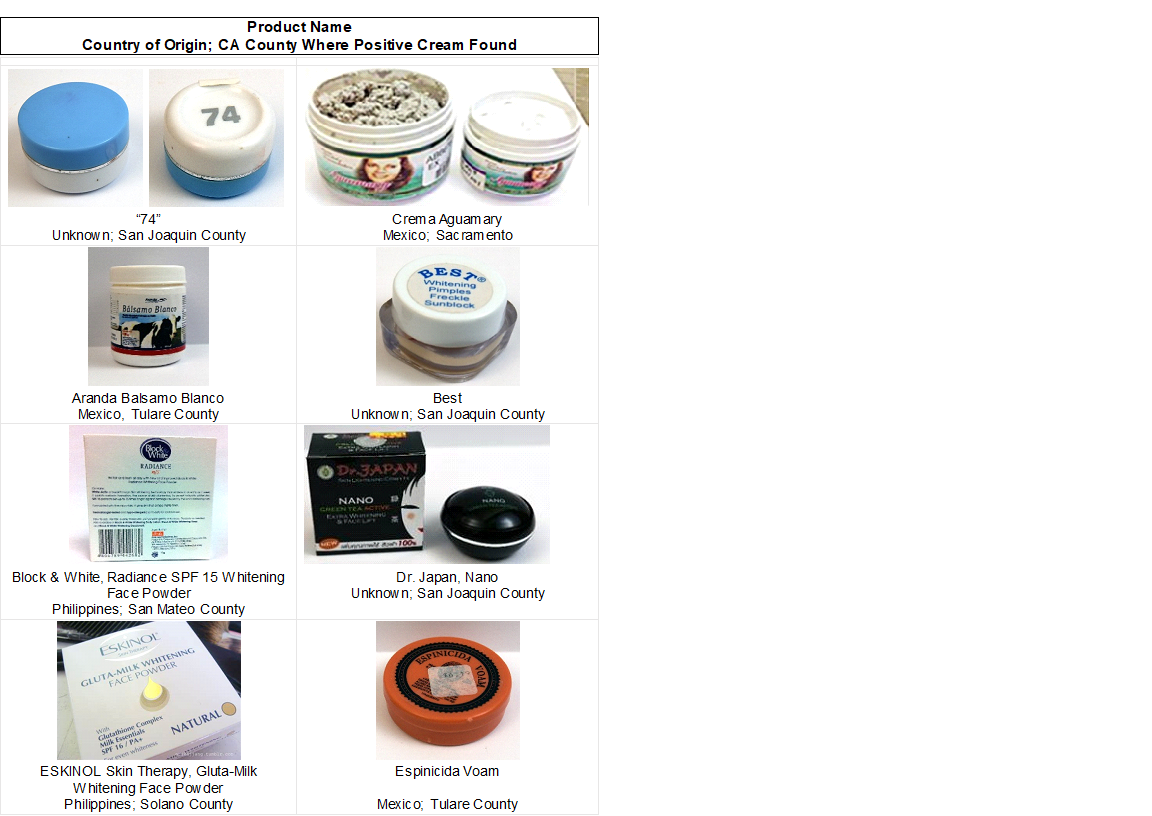Unveiling The Truth Behind Face Cream Mercury: A Deep Dive
In the world of skincare, the quest for the perfect face cream often leads consumers down a rabbit hole of options, ingredients, and marketing claims. Amidst the myriad of products available, some have gained notoriety for their controversial components, one of which is mercury. While many are drawn to the promises of fairness and radiance, the underlying dangers of mercury in face creams are often overlooked. This article aims to shed light on the implications of using face creams containing mercury, helping consumers make informed decisions about their skincare choices.
The allure of a lighter, more radiant complexion has driven many individuals to seek out products that promise miraculous results. However, the inclusion of mercury in face creams raises serious concerns about safety and health. As we delve deeper into this topic, we will explore the historical context of mercury usage in cosmetics, the potential risks associated with its application, and alternatives that consumers can consider for safe skincare.
Understanding the implications of using face creams that contain mercury is crucial. Not only can such products cause detrimental effects to the skin, but they can also lead to severe health consequences. This article seeks to provide clarity on the subject, ensuring that readers are well-informed about their skincare choices and the potential risks they may face.
What is Face Cream Mercury?
Face cream mercury refers to cosmetic products that include mercury or its compounds as active ingredients. Historically, mercury has been used in some skin-lightening creams due to its ability to inhibit melanin production. However, its usage has been met with significant backlash due to the associated health risks.
Is Face Cream Mercury Safe to Use?
The safety of face cream mercury is highly contentious. While some users may experience immediate benefits like lighter skin, the long-term consequences can be severe. Mercury exposure can lead to skin irritations, allergies, and even systemic toxicity. Regulatory bodies in many countries have banned the use of mercury in cosmetics, highlighting the serious concerns surrounding its safety.
What are the Health Risks of Mercury in Face Creams?
- Skin damage and irritation
- Allergic reactions
- Kidney damage
- Nervous system impairments
- Potential for mercury poisoning
Who is Most Affected by the Dangers of Face Cream Mercury?
Individuals who frequently use skin-lightening products are particularly at risk. This demographic often includes those seeking to conform to societal beauty standards that favor lighter skin tones. Additionally, young women and adolescents are disproportionately affected, as they may not fully understand the implications of using such products.
Are There Safe Alternatives to Face Cream Mercury?
Fortunately, there are numerous safe alternatives to face creams containing mercury. Many products utilize natural ingredients to achieve similar effects without the health risks. Some effective alternatives include:
- Vitamin C serums
- Niacinamide creams
- Alpha hydroxy acids (AHAs)
- Licorice extract-based products
How Can You Identify Face Creams Containing Mercury?
To ensure that you are avoiding face creams with mercury, it's essential to read labels carefully. Look for the following indicators:
- Ingredients like mercury, mercuric, or mercurous compounds
- Vague terms such as "lightening agents" without specific ingredient listings
- Products marketed as "instant whitening" or "miracle creams"
What Regulations Exist for Face Creams with Mercury?
Many countries have implemented strict regulations regarding the use of mercury in cosmetics. The FDA in the United States, for example, prohibits the use of mercury in over-the-counter skin care products. Similarly, the European Union has banned mercury in cosmetics altogether. However, enforcement can be challenging, especially with products sold online or in unregulated markets.
Can Consumers Advocate for Safer Skincare Products?
Absolutely! Consumers play a critical role in advocating for safer skincare products. By raising awareness about the dangers of face cream mercury and supporting brands that prioritize safety and transparency, individuals can drive change in the cosmetics industry.
In Conclusion: Choosing Wisely for Your Skin
The world of skincare can be overwhelming, but being informed is the first step toward making wise choices. Recognizing the dangers of face cream mercury is crucial for protecting your skin and overall health. By opting for safer alternatives and advocating for better regulations, consumers can contribute to a healthier future for themselves and for the skincare industry as a whole.
Article Recommendations
- Ramen Recall
- Paulina
- Stephen Stills Wife
- Luke Beasley Partner
- Subashree Mms
- Aaron Eckhart Wife
- Sunday Rose Kidman Urban
- 15 Year Karmic Cycle Ending Meaning
- Tony Hinchcliffe Parents
- Jayson Christopher Tatum Jr Mom




